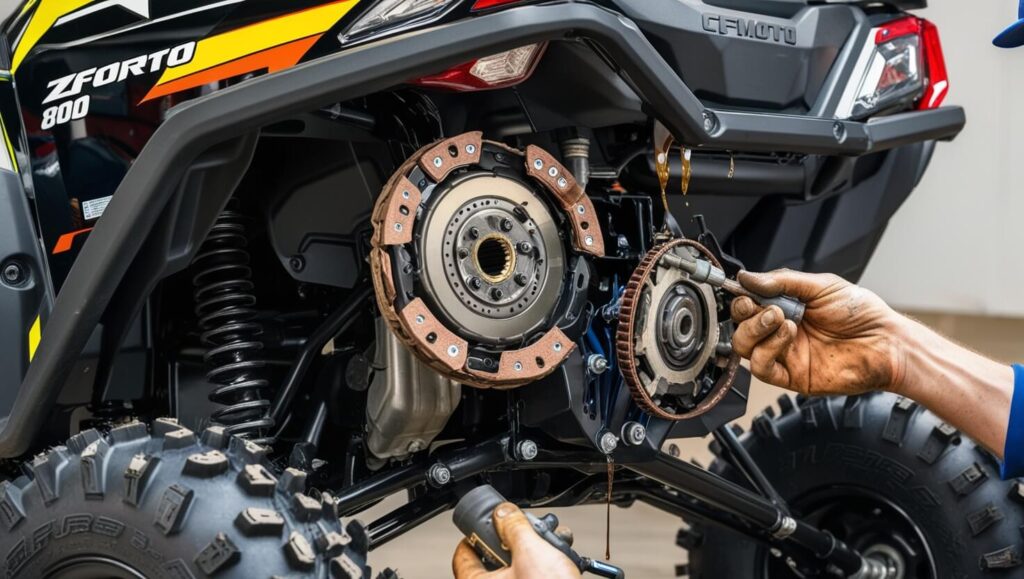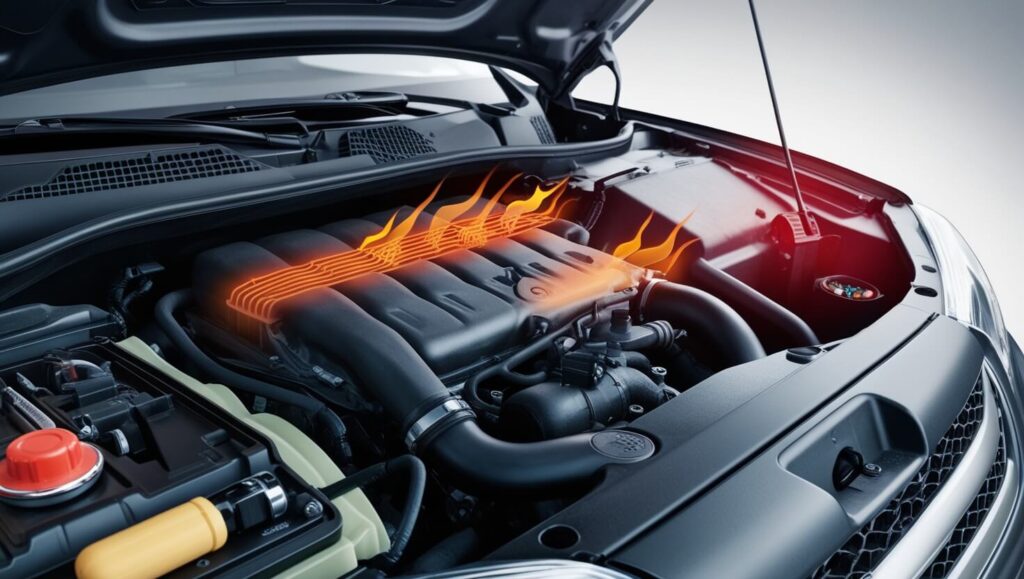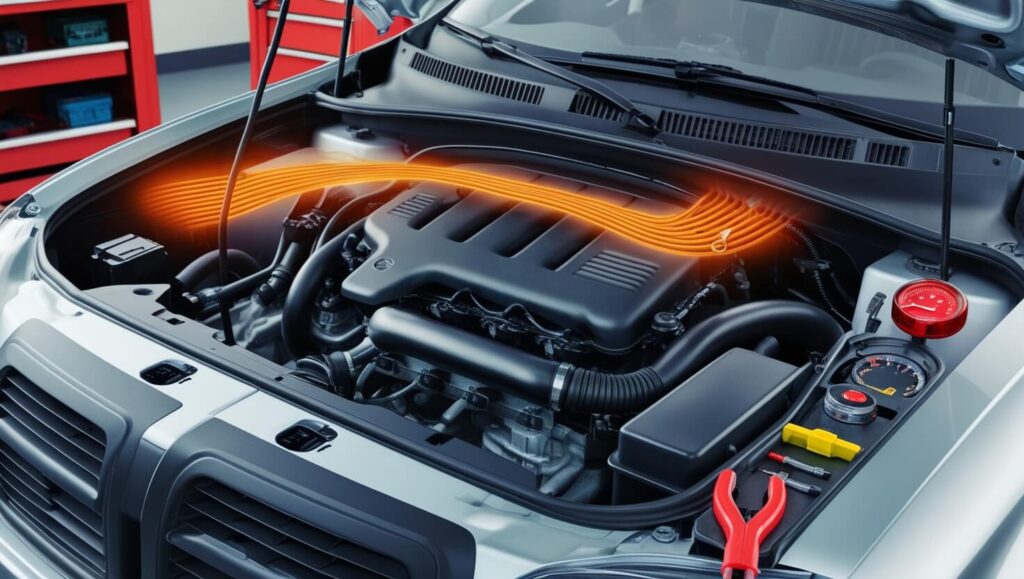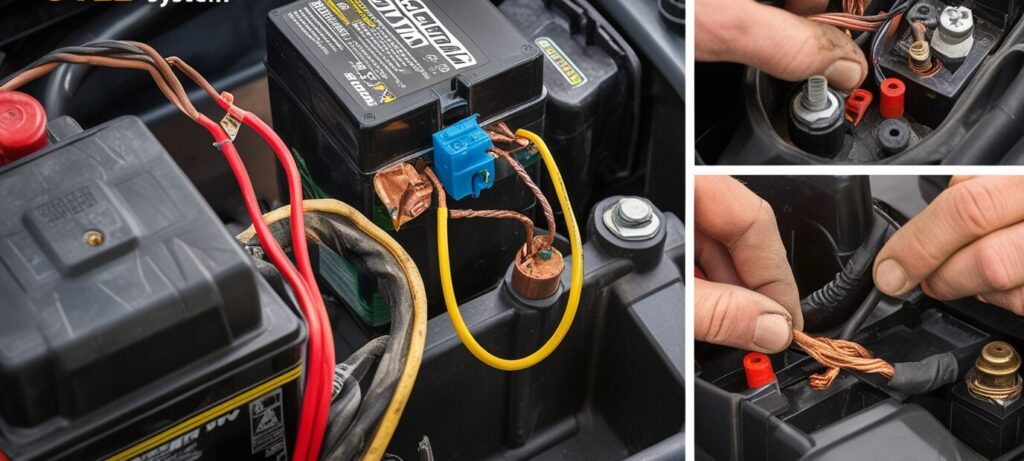Did you know that over 30% of Honda Pioneer 1000 owners report recurring mechanical issues within the first few years?
This statistic might be surprising, especially considering Honda’s reputation for reliability. If you’re considering a Honda Pioneer 1000, or already own one, you’re probably wondering:
“What are the common problems with this UTV, and how can they be fixed?” From transmission glitches to clutch malfunctions, the Pioneer 1000 has some challenges that can affect its performance.
But don’t worry—solutions exist, and this article will guide you through each one with practical tips and insights.
The most common Honda Pioneer 1000 problems are transmission issues, clutch problems, won’t start, engine knocking, engine overheating, engine misfire, engine stalling, brake issues, oil leaks problems, electrical issues, loss of power, fuel pump problems and PTO issues.
Honda Pioneer 1000 Problems and Solutions
Now we are going to explore the most common problems of Honda Pioneer 1000 that you might face on offroading. Also explore the problems of Honda Pioneer 700.
1. Transmission Problems

If you own a Honda Pioneer 1000, knowing the common transmission problems can save you time and money.
Symptoms may include unusual noises, difficulty shifting gears, or the vehicle not moving at all despite the engine running.
If you notice any of these signs, it’s essential to address them promptly to avoid more severe issues.
Common Causes of Transmission Issues
Transmission problems in your Honda Pioneer 1000 can stem from various causes. One frequent issue is low transmission fluid levels, which can lead to poor lubrication and overheating.
Faulty sensors, such as those measuring transmission fluid temperature, can also cause erratic shifts.
Additionally, wear and tear on components or improper use of the vehicle can lead to internal mechanical failures.
Solutions
To solve transmission problems, start with a simple check of your fluid levels.
If they are low, topping them off may solve the issue. Regular maintenance is crucial; make sure to follow the manufacturer’s service schedule to keep parts in good condition.
If you suspect a more serious problem, consulting a qualified mechanic is often the best course of action.
They can offer an accurate diagnosis and necessary repairs, ensuring your vehicle runs smoothly again.
2. Clutch Problems

If you’re noticing issues with your Honda Pioneer 1000, it’s crucial to identify the symptoms related to clutch problems.
Some of the most common indicators include slipping or delayed engagement when you change gears.
You might also hear unusual grinding noises or experience difficulty in shifting, especially under load.
Pay attention to any vibrations in the pedal – these can signal deeper issues. Also explore the Honda Pioneer 500 problems.
Causes of Clutch Issues
Several factors can contribute to these issues. Over time, the clutch components, such as the disc, pressure plate, or release bearing, may wear out due to regular use.
Additionally, poor adjustment or contaminated clutch fluid can lead to these complications. If you’ve been driving in challenging terrains frequently, wear and tear can accelerate.
Solutions
Now that you’ve identified the symptoms and the potential causes, let’s dive into solutions.
The first step is to perform a thorough inspection of the clutch system. If you’re uncomfortable doing this alone, I recommend consulting a certified mechanic.
In many cases, simply replacing the worn components will resolve the issues and restore your vehicle’s performance.
Regular maintenance and timely adjustments can help prevent future problems.
Moreover, ensuring the clutch fluid is clean and at the right level will contribute to smoother operations.
Also explore the problems of Honda Pioneer 520
3. Won’t Start

When your Honda Pioneer 1000 won’t start, it can be frustrating.
Common symptoms include the engine not cranking, strange clicking noises, or lights on the dashboard failing to illuminate.
If you have any of these problems, don’t worry! Understanding these signs can help you diagnose the problem more effectively.
Identifying Possible Causes
Several factors could lead to your Honda Pioneer 1000 not starting. Often, the root cause can be a dead battery, especially if you haven’t used your vehicle for a while.
Other potential issues include faulty wiring, a bad starter motor, or issues with the ignition switch.
Don’t overlook simple problems like an empty gas tank, as they can be the simplest—and easiest—fix.
Solutions to Get You Back on Track
To address the issue, start by checking your battery. Make sure that the connections are tight and clean them if necessary. If the battery is dead, jump-start it or replace it if it’s older than three years.
Next, examine the wiring for any signs of wear or damage, as faulty connections can prevent starting.
If those steps don’t resolve the problem, consider getting the starter motor checked, as it might need replacement.
Remember, tackling these issues one step at a time can help you identify the solution efficiently.
4. Engine Knocking

Engine knocking is essentially an unusual sound that indicates there’s a problem. It often sounds like pinging or knocking, and it can be concerning. Here are the symptoms, potential causes, and some simple solutions of this issue.
Symptoms of Engine Knocking
The most noticeable symptom of engine knocking is the sound itself. You may hear a loud, rhythmic knocking noise that increases in frequency with acceleration.
Other signs include a loss of power or a decrease in fuel efficiency. If you notice these symptoms, it’s important to address them quickly to avoid further damage.
Causes of Knocking in Your Honda Pioneer 1000
There are several potential causes for engine knocking.
One common issue might be poor-quality fuel, which can lead to pre-ignition.
Another cause could be spark plugs that are worn out or incorrectly gapped.
Additionally, low oil levels or dirty oil can cause the engine to run too hot, leading to knocking sounds. It’s essential to identify the cause accurately.
Solutions
First, try using a higher quality fuel or an octane booster to eliminate knocking due to fuel issues. If the spark plugs are old, replacing them can also make a significant difference.
Lastly, ensure your oil level is sufficient and change it regularly to keep your engine well-lubricated. If the problem persists, consider seeking help from a professional mechanic.
5. Engine Overheating

As a rider of a Honda Pioneer 1000, you may sometimes face engine overheating issues. It’s a common problem that can affect performance and longevity, but don’t worry—I’m here to help you understand the symptoms, causes, and practical solutions.
Symptoms of Overheating
You’ll know something is off if your Honda Pioneer 1000 exhibits certain symptoms. Look for:
- Temperature gauge reading higher than normal
- Unusual smells from the engine area
- Steam or smoke coming from the engine
- Loss of power or engine stalling
Common Causes of Overheating
Several factors can lead to engine overheating in your Honda Pioneer 1000:
- Coolant Issues: Low or contaminated coolant can hinder heat dissipation.
- Thermostat Failure: A malfunctioning thermostat may prevent coolant circulation.
- Clogged Radiator: Dirt and debris can block airflow, reducing cooling efficiency.
Effective Solutions
To tackle engine overheating, consider these steps:
- Check and refill coolant levels regularly.
- Inspect the thermostat and replace it if necessary.
- Clean the radiator to remove blockages.
6. Engine Misfire

If you own a Honda Pioneer 1000, you may encounter an engine misfire. But what exactly does this mean? An engine misfire happens when one or more of the engine’s cylinders don’t work correctly. This can lead to a series of problems that affect your ride’s performance and safety.
Symptoms of Engine Misfire
- Rough idling
- Loss of power during acceleration
- Unusual engine noises, like backfiring
- Increased emissions
- Check engine light illumination
Causes of Misfire
- Faulty spark plugs: Worn-out or damaged spark plugs can hinder the ignition process.
- Fuel delivery issues: Clogged fuel injectors may prevent proper fuel flow to the engine.
- Ignition system problems: Defective ignition coils can lead to misfires.
- Vacuum leaks: A leak in the vacuum system can upset the air-fuel mixture, resulting in misfiring.
Simple Solutions
Don’t worry if your Honda Pioneer 1000 experiences an engine misfire. Here are some straightforward solutions:
- Inspect and replace spark plugs as necessary.
- Clean fuel injectors or consider a full fuel system cleaning.
- Check the ignition coils and replace them if they look worn out.
- Examine the vacuum system for leaks and repair them promptly.
7. Engine Stalling

Common symptoms include a sudden loss of power while driving, the engine not starting smoothly, or the vehicle shutting off unexpectedly.
These issues can be frustrating, especially if you’re relying on your Pioneer for work or recreation.
It’s important to spot these signs early to prevent bigger problems.
Understanding the Causes Behind Stalling
There are several reasons your Honda Pioneer 1000 might experience engine stalling.
One common cause is fuel supply issues, such as clogged fuel filters or a faulty fuel pump.
Additionally, problems with the ignition system, like worn spark plugs, can lead to improper combustion and stalling.
Therefore, keeping an eye on these components is vital for maintaining your vehicle’s performance.
Solutions
First, regularly inspect and replace fuel filters and ensure your fuel pump is functioning correctly. If you’re unsure how to do this, don’t hesitate to consult a professional mechanic or refer to your owner’s manual.
Secondly, check your spark plugs and ignition system components, replacing them if necessary.
By taking these proactive steps, you can ensure that your Honda Pioneer 1000 runs smoothly and efficiently.
8. Brake Problems

When it comes to brake issues, there are some telltale signs you should be aware of.
You might notice a squeaking or grinding noise when you apply the brakes. This could indicate worn brake pads that need replacement.
Additionally, if your brake pedal feels spongy or sinks to the floor, it could signal air in the braking system or a fluid leak.
Lastly, if your Honda Pioneer 1000 veers to one side when you brake, something could be wrong with your brake shoes.
Identifying Causes and Their Solutions
Understanding the causes behind these symptoms is essential. Worn brake pads are often the result of regular use and can easily be replaced.
If you’re facing a spongy brake pedal, start by checking for leaks in the brake lines; fixing or replacing damaged lines can resolve the issue.
Lastly, if your vehicle pulls to one side, it may be time to inspect or replace the brake shoes. Regular maintenance of your Honda Pioneer 1000 will also help prevent many of these problems from arising in the first place.
9. Oil Leaks Problems

Sometimes, you may have noticed some troubling signs with your UTV. Oil leaks can happen, and they often manifest as puddles under your vehicle or a noticeable drop in your oil levels.
Ensuring you can spot these symptoms early is important for maintaining the health of your UTV.
Causes of Oil Leaks
- Worn seals or gaskets: Over time, rubber seals can degrade and lead to leaks.
- Loose oil filter: If you’ve recently changed the oil, a loose filter can cause leaking.
- Punctured oil pan: A hit or scrap might have compromised the integrity of your oil pan.
Solutions to Address Oil Leaks
- Check your oil filter: Ensure it’s tightened properly and hasn’t been damaged.
- Inspect seals and gaskets: If they appear cracked or worn, consider replacing them.
- Repair or replace your oil pan: This might require professional help, especially if you’re unfamiliar with DIY repairs.
10. Electrical Issues

Sometimes, you might encounter some electrical problems along the way. It’s essential to be aware of common symptoms that may indicate your vehicle is having electrical issues.
Look out for signs such as flickering lights, a malfunctioning dashboard display, or difficulty starting the engine. These symptoms can signal underlying problems that need attention.
Possible Causes of Electrical Problems
One common cause is a weak or dead battery. If your battery isn’t holding a charge, it may lead to various electrical malfunctions.
Additionally, check your wiring. Corroded or damaged wires can disrupt the electrical flow, causing inconsistencies in performance.
Lastly, faulty fuses can lead to issues with specific electrical components.
Solutions
Start by inspecting the battery; if it’s old or weak, consider replacing it. Ensure your battery terminals are clean and tightly connected.
Next, visually inspect your wiring for any signs of damage or corrosion. If you encounter any issues, it’s advisable to replace the affected wires.
Lastly, check your fuses, and if any are blown, replace them to restore proper function.
11. Loss of Power

As a Honda Pioneer 1000 owner, you might have encountered a decrease in power while driving.
This can manifest in several ways, such as sluggish acceleration, reduced engine performance, or difficulty climbing hills.
These symptoms can be frustrating, especially when you rely on your vehicle for work or recreation.
Common Causes of Power Loss
One common issue is a dirty air filter, which can restrict airflow to the engine, leading to poor performance.
Additionally, fuel quality plays a crucial role; old or contaminated fuel can negatively affect engine power.
Another potential cause could be a failing spark plug, which may result in misfiring and performance issues.
Lastly, if the vehicle’s clutch is worn or damaged, it can lead to power transfer problems.
Solutions
Start by checking and replacing the air filter, if necessary. Ensuring that you are using clean fuel is essential; consider draining old fuel and replacing it with fresh gasoline.
Inspecting and replacing spark plugs can also make a significant difference in engine performance.
Finally, if you’re not comfortable handling these repairs yourself, don’t hesitate to consult a qualified mechanic who can evaluate the clutch and other components for wear and provide appropriate solutions.
12. Fuel Pump Issues

If you own a Honda Pioneer 1000, it’s crucial to be aware of the common symptoms indicating fuel pump problems.
Many users report issues such as difficulty starting the machine, sudden engine stalling, or a noticeable decrease in power while driving.
You might also notice unusual noises coming from the fuel tank or inconsistent fuel pressure during operation.
If any of these symptoms sound familiar, it’s important to address them promptly.
Potential Causes of Fuel Pump Failure
One common cause is a clogged fuel filter, which can restrict fuel flow to the engine.
Additionally, contaminants in the fuel tank, such as dirt or rust, can also affect the functionality of the pump.
Over time, wear and tear or electrical problems in the fuel pump itself may lead to serious failures.
Solutions
Start by checking and replacing the fuel filter as needed, and make sure to keep the fuel tank clean to prevent contamination.
For more severe problems, like a failing fuel pump, professional inspection might be necessary.
Additionally, consider running high-quality fuel to improve overall performance. With the right care and timely intervention, you can keep your Honda Pioneer 1000 running smoothly.
13. PTO Issues

The Honda Pioneer 1000 is an excellent utility vehicle known for its performance and versatility. However, like any mechanical system, it may encounter problems, particularly with its Power Take-Off (PTO) system.
Recognizing the Symptoms of PTO Problems
If you notice any unusual symptoms, it could indicate PTO problems. Common symptoms include:
- The PTO is not engaging when you activate it.
- Low power output when using attached implements.
- Abnormal noises or vibrations while operating the PTO.
Identifying the Causes of PTO Issues
- Low fluid levels or dirty fluid in the hydraulic system.
- Worn or damaged PTO clutch components.
- Electrical issues such as faulty wiring or blown fuses.
Solutions to Common PTO Problems
- Check the hydraulic fluid level and quality. If low or dirty, replace it.
- Inspect the PTO clutch for signs of wear; consider replacing damaged parts.
- Verify the electrical connections and wiring for any faults.
Conclusion
While the Honda Pioneer 1000 offers excellent off-road capabilities, it’s essential to stay on top of these common problems to ensure long-term performance.
With regular maintenance and smart upgrades, you can overcome the transmission, clutch, and overheating issues that many owners face.
Whether you’re using your UTV for work or adventure, these solutions will keep your Pioneer running smoothly.
Ready to maximize your ride’s performance? Start by addressing these issues today and enjoy a trouble-free experience on your next adventure!
FAQs
Is the Honda Pioneer reliable?
Yes, the Honda Pioneer is considered reliable, known for its durability and performance. With proper maintenance, it can handle tough terrains and heavy workloads over the long term.
How many miles will a Honda Pioneer 1000 last?
With proper care and regular maintenance, a Honda Pioneer 1000 can last between 15,000 to 20,000 miles, depending on usage and driving conditions.
Is the Honda Pioneer 1000 fast?
The Honda Pioneer 1000 has a top speed of around 67 mph, making it one of the faster utility vehicles, suitable for both work and recreational off-road adventures.
Where are Honda Pioneer 1000 made?
Honda Pioneer 1000 models are made in the United States, specifically in Honda’s manufacturing plant located in Timmonsville, South Carolina.